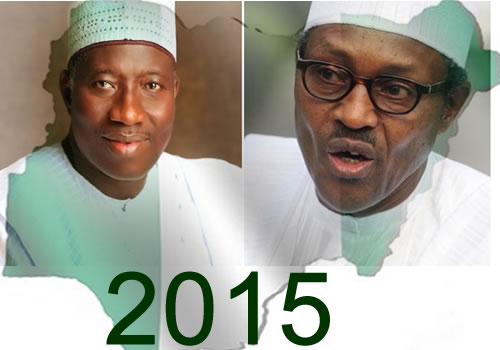Political violence in the run-up to Nigeria’s election has killed 58 people, with rising “hate speech” between rival camps threatening to spark further unrest, the country’s human rights commission (NHRC) said on Friday.
“If urgent steps are not taken to arrest further escalation, Nigeria’s 2015 general elections would confront a high risk of significant violence,” the commission said in a new report. Such violence “could pose a clear and present danger to the stability of the country and its neighbours”.
The Nigerian election, initially scheduled for Saturday, was postponed by six weeks because of struggles in distributing voter identity cards and the Boko Haram Islamist conflict in the northeast, which has killed 13,000 people in six years. The NHRC, which began tracking political violence in December, noted Nigeria’s long history of bloodshed following elections, especially in the religiously divided central states. But it added that “the pattern and intensity of pre-election violence is atypical of Nigeria’s recent electoral history” and amounted to a worrying new development.
Isolated incidents of deadly unrest were recorded across the country during the 50-day reporting period, as rival factions, sometimes within the same party, clashed through the nomination process and the first half of the general campaign. The NHRC said three states — Lagos (southwest), Rivers (south) and Kaduna (north) — faced the greatest risk of “significant violence during the 2015 elections”.
This finding was based on information given to field researchers as well as factors specific to each state. Lagos and Rivers are both controlled by opposition governors but voted for President Goodluck Jonathan in 2011 and are seen as crucial to his re-election prospects. Kaduna, which is majority Muslim but has a large Christian community in the south, suffered the worst violence after the 2011 polls and tensions may escalate there again, the report said. “Of the 943 persons… officially verified as having been killed in the 2011 post-election violence in Nigeria, 827, or over 80 percent, were from southern Kaduna,” the NHRC said.
Resentment in the state has been compounded by the fact that “there was not a single arrest of any person in connection with those (2011) killings”, creating a climate of impunity that could spark further bloodshed, according to the commission. The report noted that an unnecessarily high number of police officers were allocated to protecting powerful politicians, leaving too few personnel to provide adequate security around polling day.
The NHRC agreed with other experts in saying that the 2015 vote is almost certain to be the closest in Nigerian history. Jonathan, from the Peoples Democratic Party (PDP), is facing a tough challenge from ex-military ruler Muhammadu Buhari, of the All Progressives Congress (APC).




